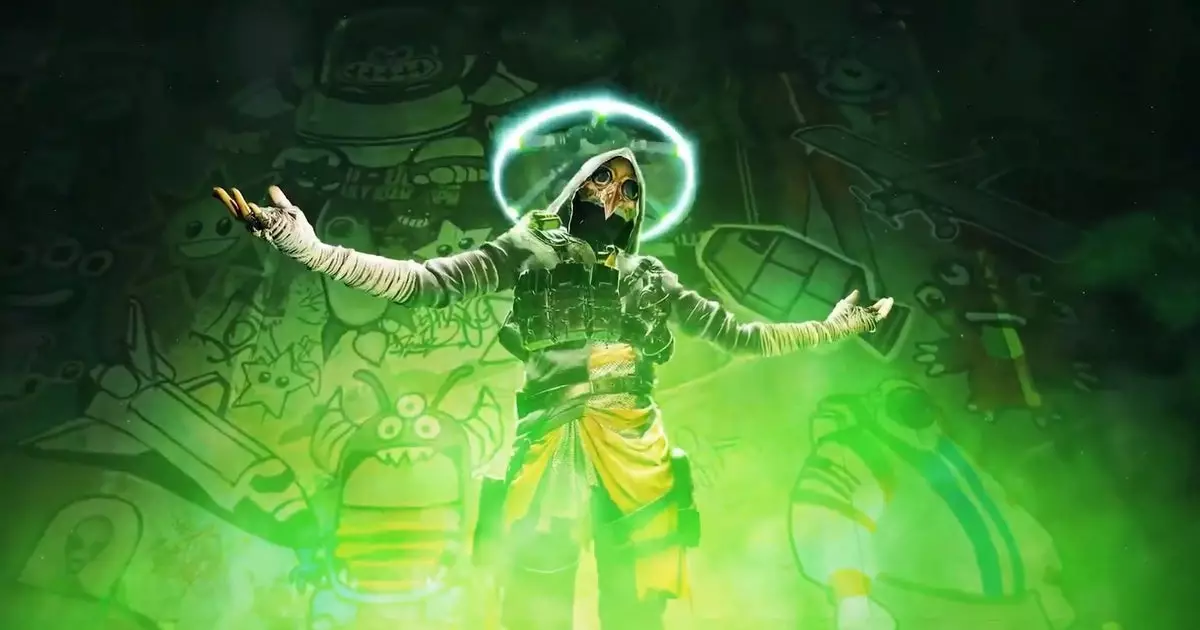Ubisoft’s decision to discontinue their PvP shooter XDefiant marks a significant moment in the ongoing struggle within the competitive landscape of the free-to-play gaming market. The closure not only reflects the challenges the title faced in sustainability and player retention but also triggers a wave of job losses, underscoring the tumultuous nature of the gaming industry. This article delves into the ramifications of XDefiant’s discontinuation, the impact on employees, and the broader implications for game development strategies.
In a candid statement shared with employees and later echoed on Ubisoft’s official communication channels, executive Marie-Sophie de Waubert expressed the company’s shortcomings in attracting and retaining a stable player base. The apparent inability to compete in the demanding free-to-play FPS market became a pivotal reason for ceasing operations on XDefiant. The acknowledgment of such challenges paints a grim picture for not only Ubisoft but for other developers navigating similar waters. The reality remains stark: despite investing in the development of a title, a lack of sustained player engagement could unravel an entire project.
As half of XDefiant’s development team faces layoffs across Ubisoft’s studios in San Francisco, Osaka, and Sydney, the emotional and psychological toll on affected employees is profound. Most of these individuals have dedicated significant portions of their careers to the failed endeavor, only to be left scrambling for opportunities in an industry that is known for its volatility. While the remaining staff transition to other roles within the company, the loss inflicted on their colleagues creates a disparity of morale that cannot be overlooked.
The Games-as-a-Service Business Model: A Double-Edged Sword
Despite the dismal outcome of XDefiant, Ubisoft remains steadfast in its commitment to pursue the games-as-a-service model. De Waubert’s mention of past successes, such as Rainbow Six Siege and For Honor, suggests a belief that perseverance and iterative improvements can lead to viable outcomes even in the face of failure. However, this sentiment may come off as cold comfort for those whose lives are now uprooted. The inconsistency of the games-as-a-service paradigm has been made increasingly apparent; transformations do not happen overnight, and nor do they happen without significant investment in both time and resources.
The decision to close XDefiant may entice skepticism regarding the efficacy of the current strategy. With previous titles benefiting from long-term support, one cannot help but wonder if similar strategies could have salvaged the project had they been implemented earlier. The rapid obsolescence of XDefiant serves as a cautionary tale about the precarious nature of development cycles and the delicacies entwined with monetization and player satisfaction.
The troubling echoes of XDefiant’s fate indirectly illustrate the larger trends permeating the gaming industry. As studios chase the rapidly shifting winds of market preference, it fosters an environment ripe for disillusionment. Fueled by corporate ambitions and imbalanced expectations, developers can find themselves stretched thin, ultimately leading to games that fail to meet the demands of an audience that is demanding and often hostile.
The way management downplayed concerns earlier this year—insisting that the game was healthy and just needed time—only to rapidly pivot to announcements of closure reflects a significant disconnect within the organization. As the industry increasingly relies on live service models, developers face amplified pressure to deliver on promises made during promotional cycles; unfortunately, this often results in a societal tendency to stigmatize perceived failures.
For the nearly 300 individuals impacted by the closure of XDefiant, the personal ramifications are hard to ignore. The gaming community has shown an increasing awareness of the human element behind game development, often advocating for improved working conditions and job security. As the industry grapples with issues of burnout, crunch time, and the ephemeral nature of employment, fostering an environment where creativity can thrive alongside job stability becomes paramount.
While some may argue that XDefiant’s discontinuation signals a necessary reflection on player demand and development strategies, it is essential to remember the human costs embedded within this narrative. The hope remains that industry leaders will cultivate an ecosystem that balances the pursuit of profit against the well-being of their teams—a fundamental contradiction that, if addressed, could offer a pathway to a more robust and supportive future.
Ultimately, the closure of XDefiant serves as a stark reminder of both the volatility present in the gaming industry and the urgency of ensuring that the human element is recognized and respected amid economic imperatives. Only time will tell if Ubisoft and similar companies will learn from this experience, but the cost of inaction can lead to irrevocable consequences that reverberate far beyond the game’s servers.

